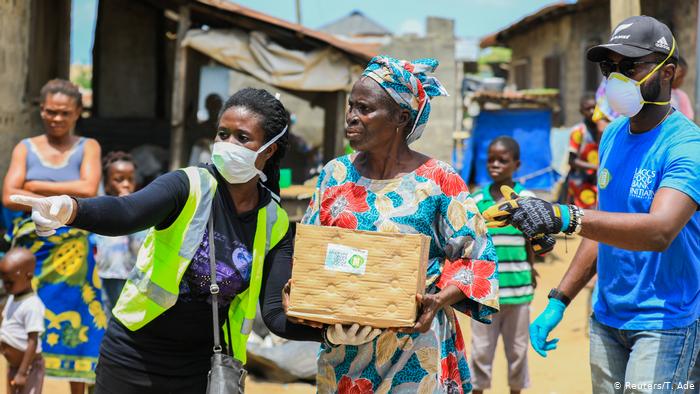There are no products in your shopping cart.
| 0 Items | £0.00 |


AS many as 30m people may have been pushed into extreme poverty across sub-Saharan Africa as a result of the economic impact of the coronavirus pandemic according to the findings of a new economic report just published by Bloomberg.
Released at the recent Bloomberg New Economy Forum in Singapore, the report revealed that the Covid-19 pandemic has wiped out more than five years of progress across sub-Saharan Africa. It noted that while some ground will be made up as economies across the continent recover, it will still not be enough to meet the United Nations’ Sustainable Development Goal of eradicating poverty by 2030.
This target was already a stretch before the pandemic hit but according to the report, Covid-19 has pushed it beyond reach. This Bloomberg Economics Special Report titled Covid: Jobs, Prices and Growth in the Enduring Pandemic, focused on the challenges coronavirus poses to growth, inflation and development globally.
A piece titled Half a Billion in Poverty and Counting: How Covid Derailed Africa’s Development Goals, reveals how a lost year of growth has affected poverty reduction goals in Africa. It added that the turn of the century saw Africa’s economy on an upward trajectory due to reduced conflict, allowing for better economic policies and increased macroeconomic stability.
From 2016, however, growth has faltered as the slowdown started a year after the adoption of the Sustainable Development Goals. Sub-Saharan Africa continues to lag behind on most of the goals, most notable is the lag on poverty reduction, as before the pandemic in 2019, Africa had more than 60% of the world’s 700m poor.
In 2020, sub-Saharan Africa plunged into its first recession in more than 25 years, erasing at least five years of progress in fighting poverty. Economists forecast that lost ground will not be recovered until 2024 when the expected per capita output returns to pre-pandemic levels.
Furthermore, the report also pointed out that sluggish vaccine rollout means that many countries will continue to deal with virus outbreaks that delay the safe reopening of their economies. It noted that to make notable progress on poverty eradication, Africa will require immense support from the international community given the region’s limited resources.
“Rising debt service costs will continue to squeeze out much-needed development spending even when the virus effects fade. The persistent impact of the pandemic on incomes means the poverty rate would translate into almost 25m more people living in poverty, compared with pre-Covid estimates," the report stated.
It added that to address this gap, funding from official creditors including the International Monetary Fund, the largest providers of external debt, remains crucial for sub-Saharan Africa. Over the past 20 years, China has become one of the largest creditors on the continent and has seen its share of debt owed rise from about 40% in 2010 to more than 63% at the end of 2019.